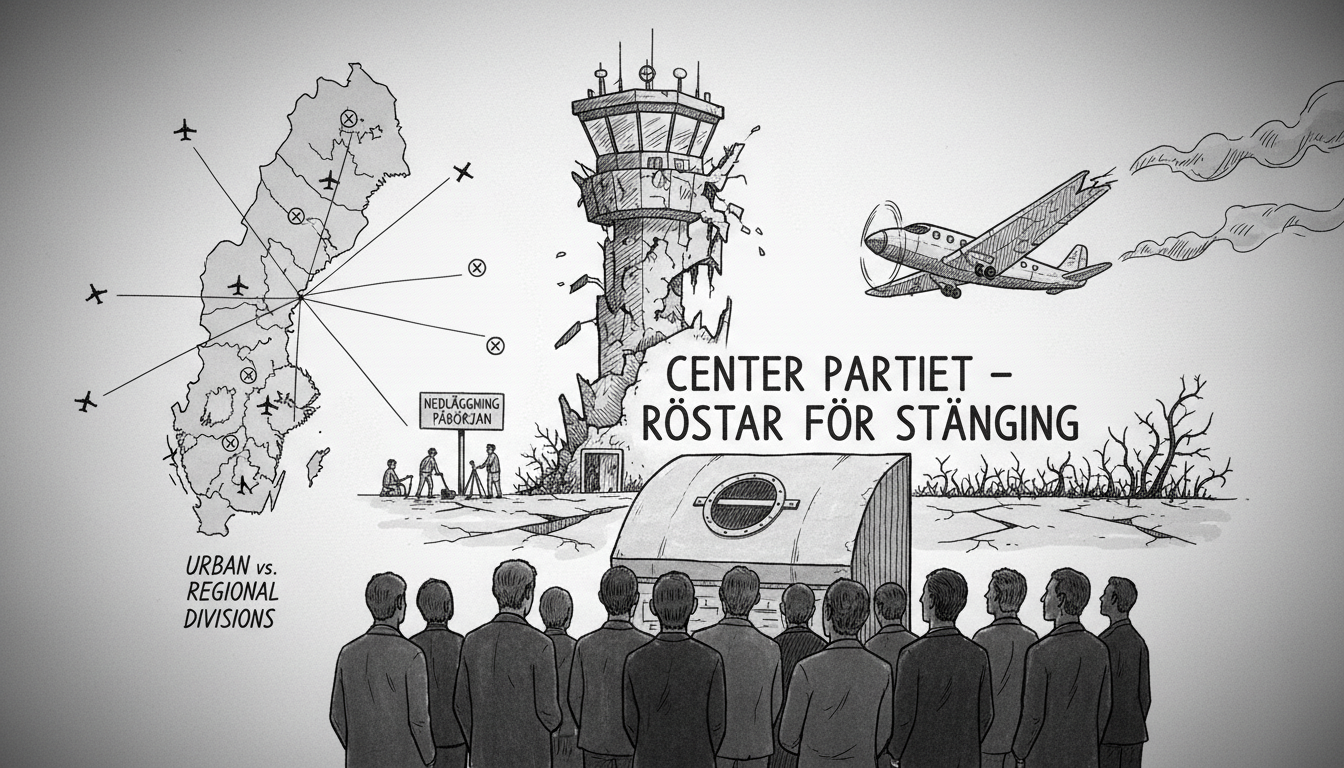The Center Party has decided to push for the closure of Bromma Airport in Stockholm. Delegates made this decision during their party conference in Karlstad on Sunday. The vote followed intense debate among party representatives from different regions.
Party leadership argued for shutting down the airport. They pointed to declining commercial flight traffic as a key reason. Maintaining the facility has become too costly for airport operator Swedavia, they claimed.
But not all party members supported the move. Representatives from regions with their own airports voiced strong opposition. Andreas Joäng, the Center Party group leader in Växjö, argued this affects the entire country. He said regional airports like Bromma support business development and job creation.
Local Center Party representatives in Stockholm already supported closing Bromma. They see the urban airport as outdated. The land could be better used for housing or other development, they suggest.
The debate reflects a classic urban-rural divide in Swedish politics. Urban politicians often view small airports as unnecessary. Regional representatives see them as vital infrastructure for economic growth.
Bromma Airport has faced uncertainty for years. Commercial airlines have gradually reduced operations there. The airport primarily serves domestic routes and private flights today.
Sweden's airport system faces broader challenges. Many regional airports struggle with profitability. The government must balance transportation needs against economic realities.
What happens next? The Center Party will now advocate for Bromma's closure in parliament. But they'll face opposition from other parties and regional interests. The final decision rests with the national government.
This situation mirrors debates happening across the Nordic region. Many countries face similar questions about maintaining regional air connections versus concentrating traffic at major hubs.
International readers should understand this isn't just about one airport. It reflects broader discussions about infrastructure investment, regional development, and environmental considerations in Nordic transportation policy.
The outcome could set a precedent for other regional airports in Sweden. If Bromma closes, other struggling facilities might face similar pressure.
Business travelers and residents will watch developments closely. Bromma's location near central Stockholm makes it convenient for quick domestic trips. Its closure would redirect traffic to Arlanda Airport, farther from the city center.

